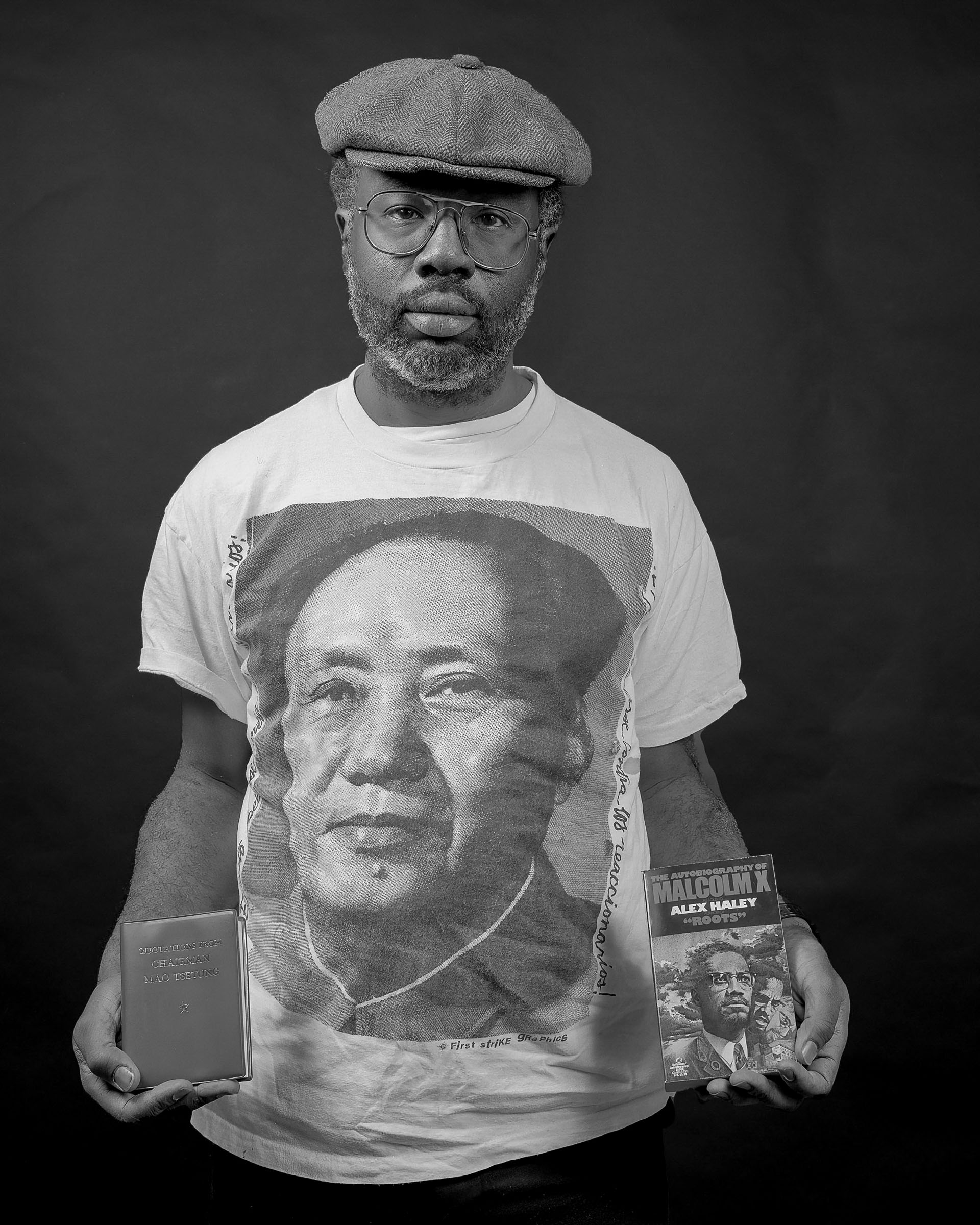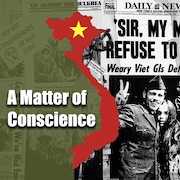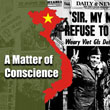
I got the first draft notice in April, 1968, a couple of days after Martin Luther King was killed and the rebellion swept the cities. I was in no mood to show up at the Army. I sent them a notice back and said I’m too busy right now. So then they hand-delivered me a notice saying I should show up in June — the people who delivered it said they were Military Police. After going through testing they sufficiently scared me about the prospect of going to Vietnam that I switched to a three-year enlistment, which I thought would get me out of going to Vietnam. It turned out that wasn’t true.
I was sent to Fort Bragg, North Carolina. We go by this big sign, “Welcome to KKK Country” outside the base and it was like, what did they get us into here? What really introduced me to reading more about Vietnam was a developing black consciousness. Malcolm X wrote quite a bit on Vietnam — what the U.S. was doing there and how ridiculous it was for people to talk about they were for justice, but then go off and help America oppress other people, especially when your people are oppressed at home in America.
I was sent to Germany and about a week after Nixon’s speech about the withdrawal from Vietnam they levied half of my unit to Vietnam. Very interesting timing. I came back to the States with orders to Vietnam. I talked with a lot of GIs to try to get the deal on what the war was really about. They would say things like, the My Lai massacre, that was SOP — standard operating procedure.
I’ve got orders to report for Vietnam on December 31st, and on the 5th I heard that Fred Hampton and Mark Clark were murdered. The Chicago police staked out the house, and at three in the morning, they shoot their way in and blow these guys away. Then I hear the Black Panthers’ side of the story and I said, “Wow, the police carried out a search and destroy mission in the middle of Chicago!” Then they attacked the L.A. Black Panthers’ headquarters and there were tanks and mortars set up in the streets of L.A. It’s like, this war isn’t just something over there, it’s here too, and I have to decide what side I’m on. I decided I couldn’t be a part of the war in Vietnam, I couldn’t go fight for America.
Usually you leave your unit in the morning and you have until midnight to report to your next duty station. So that morning a company commander calls out to the first sergeant, “I want you to go to the weapons room, draw out a .45, keep this man in your sight and if he makes a false move you have my authorization to shoot him.” I get my stuff and there’s a truck waiting and the commander says, “I’m giving you a direct order to get in the truck.” I say, “I don’t have to because I got until midnight.” And he says, “I’m going to have you over there by ten in the morning and then you’re going to be out of my hair.” I sat down on my duffel bag and said, “I’m not leaving here.” I had heard stories of people being forcibly put on the plane and I figured no sense in going any closer than right here. If they’re going to forcibly put me on it, they’re going to have to drag me across the base in broad daylight with a lot of people around. I ended up in the stockade that morning.
The trial happened four months later. The military judge made it very clear he was not listening. He says, “You guys can make your arguments for the record, I am not going to consider them, I don’t care what you have to say, it seems fairly cut and dry to me.” He would lay his head down on the desk, look out the window. He got up at one point and said, “I’m going to the bathroom; it would expedite things if you continued to make your arguments while I was gone.” They sent a group of us to Leavenworth, including five people out of the “Fort Lewis 6,” the name we got for refusing.
Archived Material
No posts
Podcasts
No posts


